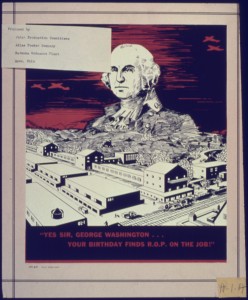
An environmental journal has retracted a paper on a technology that helps degrade explosives released into soil, because the first author never got the permission of his “co-authors” — oh, and used data that were “illegally obtained,” according to one of the slighted co-authors.
According to the EPA, more than 30 sites around the country are contaminated by decommissioned explosives, including weapons plants and army depots. A major source of the pollution was workers washing out old bombs into “evaporation lagoons” and then burning the resulting sludge.
The site used for the retracted paper was Ravenna Army Ammunition Plant, a decommissioned weapons factory that stored explosive waste in unlined landfills. According to the EPA, “open burning was also a common practice.”
The problems with the paper in Water, Air & Soil Pollution were uncovered after the head of the company, University of Georgia (UGA) professor Valentine Nzengung, found the paper on ResearchGate. He discovered that first author Chunhui Luo had used (now out-of-date) data without permission, and added Nzengung’s name to the paper without his knowledge. The other author is another UGA professor, Walter O’Niell, who told us he was also not informed about the paper.
Nzengung gave us further details via email:
Mr. Luo worked for my company “Planteco” now MuniRem Environmental, LLC. He left for China with the excuse that he had to return to China to take care of his father who had some health problems. Subsequently, I found out that he was working for other US environmental firms in China.
Through ResearchGate I found that he had published a paper with my name without my consent. The data used to prepare the manuscript was illegally obtained by Mr. Luo when he left my company.
As a Professor at the University of Georgia (patent holder) and the inventor of the technology, I approached the editors of the manuscript with my concerns. The matter was investigated, after which the publisher decided to retract the published manuscript.
…
The presentation and analysis of the test data was inaccurate. I do not intend to publish the data at this time. We have collected other data (new data) since then and so the data published by Mr. Luo is not current. Therefore, I am likely to publish sometime in the future using new data.
Here’s the notice for “Pilot-Scale Demonstration of In Situ Chemical Reduction Technology at a Formerly Used Defense Site”:
This article has been retracted because both Walter O’Niell and Valentine Nzengung have indicated they are not co-authors; they have not been involved in the writing of the article.
In addition the corresponding author Chunhui Luo may have used data without permission of the company that produced the data.
The retraction is done without the consent of the corresponding author Chunhui Luo who has been unavailable for comments.
We’ve also reached out to Luo, and will update if we hear back.
Hat tip Jean Bollinger.
This is an important topic because there are numerous sites in the US (and worldwide) where explosives contaminate the soil and leach into groundwater. Perchlorate is one example, which is found in the Colorado River at significant levels. TNT and RDX also contaminate manufacturing sites; millions of land mines in places like Iraq, Chechnya, Vietnam, Cambodia, and so on.
I read recently that one such contaminated site has millions of tons of old explosives just laying around; and it is in an area where some very poor people live. It won’t be cleaned up, and the poor people will suffer the consequences. What a country.
The broader picture that no-one is focusing on is the lack of accountability by the industrial-military complex. War, conflict and instability are good business, but which one of the main proponents actually assumes any responsibility in cleaning up in borders beyond which the ammunition and weapons are sold? This paper is the least of which deserves to go.
Fir the record, I’m not a professor at the University of Georgia. I am an adjunct faculty member at UGA. Otherwise, the comment attributed to me in this article is accurate.